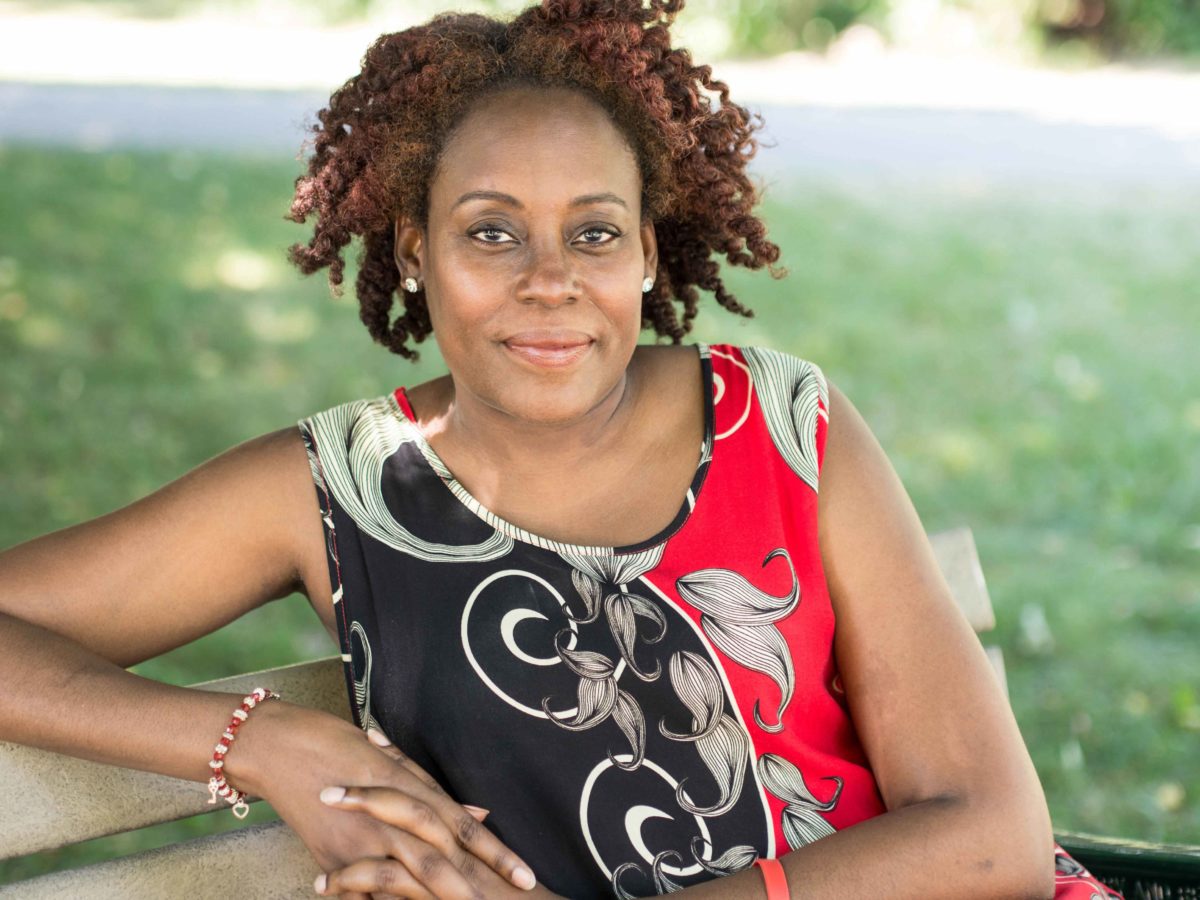University Health Network’s Dr. Jennifer Bryan, Emergency physician. (Photo: courtesy of Dr. Jennifer Bryan)
In Emergency Departments (EDs) across Canada, racialized patients may fear discrimination when they interact with healthcare systems. To promote health equity in the 24/7 care offered by EDs, a group of emergency physicians from coast-to-coast, led by University Health Network’s Dr. Jennifer Bryan, created 16 recommendations to address racism and colonialism in Emergency Medicine practice and education.
“We know right from medical school that an essential part of being a physician in Canada is to advocate for your patients. Part of that means identifying the barriers to care and—without shaming or blaming—identifying what role we may be playing, inadvertently or not,” says Dr. Bryan.
EDs are the safety net of our healthcare system and, often serving as the only point of contact with medical care for many patients, have the power to significantly influence health outcomes. Located in one of the country’s most diverse cities, “UHN’s Emergency Departments are perfectly situated to take the lead in this work. Over the years, we have an Emergency Medicine team that has been supportive of equity, diversity and inclusion initiatives, including doing outreach, breaking down barriers and really stepping up to advocate for those who needed care during the global pandemic,” she says. “We know that there are issues of racism in Canada, and it would be naïve of us to think that health care was somehow magically immune.”
Racism is prejudice against an individual and the continuation of inequalities based on that person’s skin colour or ethnicity. Colonialism is when members of society who are not Indigenous participate in practices that attempt to assimilate Indigenous populations, destroy their cultural practices and disrupt their connection to the land. Both racism and colonialism can significantly impact whether someone receives optimal health care.
From the 40-physician working group, and with community and academic input, plus a national survey of 270 emergency physicians, “we developed a panel of eight people focused on physician advancement, medical education and, most importantly, patient care,” says Dr. Bryan, who also serves as an Assistant Professor in the Division of Emergency Medicine at the University of Toronto. “It’s great to see so many Emergency Medicine physicians come together to try to tackle this huge issue facing us all. We looked at the impact of racism and colonialism in Emergency Medicine and potential solutions.”
Five of their recommendations include:
1. Be aware of the impact of racism and colonialism on health care and adopt strategies to mitigate their effects
2. Provide care using the patient’s preferred language
3. Learn about legislation, key reports and government services relevant to the care of Indigenous patients
4. Actively support the retention of physicians who are Black, Indigenous and people of colour through inclusivity, mentorship recognition and work in equity, diversity and inclusion
5. Revise current curricula and assessment tools to eliminate perpetuation of stereotypes and misrepresentation of race as a disease risk factor
Taking on an active role
“Being anti-racist and anti-colonial in Emergency Medicine really means taking on an active role to not only be clear in your own mind about what the issues are, but in taking action to address them,” says Dr. Bryan. “It’s about giving the Emergency team the tools to do what they’re already doing in a number of different ways, and to do that even better.”
She adds that “a lot of people, when they think about racism and colonialism, they have very clear images in their minds of what that means. For example, racial slurs. There are explicit forms of racism, but there are also very insidious forms of racism and the structural racism that lead to big discrepancies.”
If Emergency staff are unaware of how discrimination can lead to negative health outcomes, the ED experience can magnify the effect of systemic racism on patients. Implicit bias can especially impact patients who are Indigenous, Black or from another racialized community. Ongoing training and education for staff is vital to drive change and enhance patient care for marginalized groups. UHN’s EDs are best situated to lead this work because people from all walks of life come through their doors, including groups who face other types of systemic discrimination such as patients who identify as 2LGBTQI+ or who are newcomers to Canada, living with addictions or experiencing homelessness.

Education is key
At UHN, which has an Anti-Racism & Anti-Black Racism policy, education is key to promoting anti-racism and anti-colonialism. Dr. Bryan, as part of UHN’s Sickle Cell Working Group, recruited patient advocate Serena Thompson, former Interim Vice President of the Sickle Cell Association of Ontario, to join the group. Thompson educates Emergency staff on what sickle cell patients need and how Black patients in particular face discrimination when the disease causes them excruciating pain and they turn to any ED for help.
Thompson says that when in crisis, sickle cell patients need strong opioids, but out of fear of being mistaken as drug seeking and being dismissed as such, Black patients—even while in pain—will dress up.
“There was a time when I was dressing up, doing my hair, getting myself ready while I’m in crisis to go to the Emergency room so they would believe what I say,” she says. “After speaking with Dr. Bryan and some of the nurses who are in the group, I tell sickle cell patients that I could come down to Toronto General Hospital for treatment.”
Dr. Bryan is also Director of Operations at the Toronto Addis Ababa Academic Collaboration in Emergency Medicine, a member of the Black Physicians’ Association of Ontario, an ally member of the Indigenous Physicians Association of Canada. She and seven other Emergency physicians presented their recommendations at the anti-racism and anti-colonialism panel at the June 2021 Canadian Association of Emergency Physicians (CAEP). The theme of the symposium was equity, diversity and inclusion. You can read the panel’s full list of recommendations published in the Canadian Journal of Emergency Medicine.
